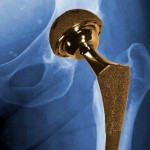
In 2003, company officials specifically urged salespeople to visit doctors who treat children, with the intention of getting more children on the drug – at a time when the drug wasn’t approved for children.
The former manager, Tone Jones, offered the testimony during a trial in Philadelphia stemming from a lawsuit by Texas teenager Andrew Bentley, who alleges the medicine caused him to grow female breasts. Bentley’s is among 420 lawsuits against Johnson & Johnson by plaintiffs who claim injury from Risperdal.
The company has already reached an agreement with the U.S. Justice Department to pay as much as $2.2 billion to resolve probes of its sales of drugs, including Risperdal. And in August, it agreed to pay $181 million to resolve claims by 36 states that it improperly marketed and advertised Risperdal and Invega, another antipsychotic.
Johnson & Johnson has a pattern of removing drugs and devices from the market.
The company marketed transvaginal mesh devices, used to treat urinary incontinence and pelvic organ prolapse, despite an FDA order to stop. It finally recalled them after thousands of complaints of device failure and injury.
And in 2010, Johnson & Johnson recalled all-metal hip implants manufactured by subsidiary DePuy Orthopaedics after studies showed that nearly half failed prematurely and required recipients to get additional surgery. Internal documents indicated that the company continued to sell the hip implants despite being aware of the problems they were causing.
According to Bloomberg, the federal government has been investigating Risperdal sales practices since 2004, including allegations the company marketed the drug for unapproved uses. Risperdal’s global sales peaked at $4.5 billion in 2007.
U.S. law allows doctors to prescribe a medicine for any condition, as long as the FDA has found it to be safe and effective against at least one ailment. But drug companies aren’t allowed to promote a drug for uses other than those approved by the FDA.
Jones testified that he attended a 2003 training session designed to increase Risperdal’s sales, during which he was shown slides urging salespeople to focus marketing efforts on doctors who “provide treatment to patients who are under the age of 18.”
If you’ve received a DePuy hip or transvaginal mesh implant, you should consult with a doctor if you have any ongoing symptoms or health concerns. If you have significant injuries from either device, you should also consult with a lawyer familiar with the DePuy hip implant or transvaginal mesh case to discuss your legal rights.
See the story here:
https://www.bloomberg.com/news/2012-09-25/j-j-pushed-risperdal-with-golf-popcorn-witness-says.html
